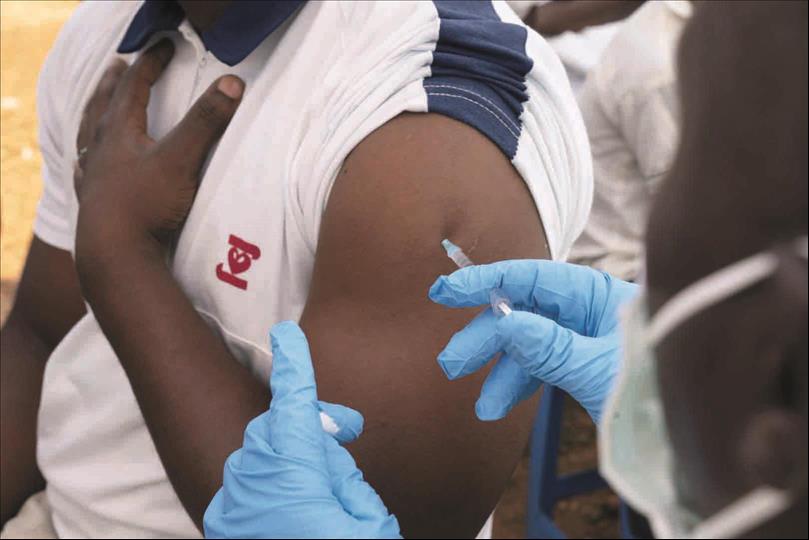
Vaccine roll-out for Lesotho
(MENAFN- The Post) MASERU -LESOTHO will receive its first batch of Covid-19 vaccines in early March.
The Ministry of Health says the vaccines will be received in phases.
First to arrive will be a package of the AstraZeneca vaccine which is part of the initial 156 000 doses enough to vaccinate three percent of the population.
The vaccines are part of the Covax Facility Advanced Market Commitment (AMC), a global initiative through which Lesotho has access to vaccines for 20 percent of the population.
In total that facility will provide about 430 000 doses of the AstraZeneca vaccine, according to Dr 'Makhoase Ranyali, the Director of Family Health at the Ministry of Health. Lesotho is not paying a cent for those vaccines.
Initial priority will be given to frontline health workers and border officials.
Next will be vulnerable groups that include people with underlying health conditions which make them susceptible to severe Covid-19 infections.
This will be followed by the elderly, teachers, factory workers, security forces, prison officials, prisoners and those working in the mines.
'We are finalising the paperwork for the delivery to start,' Dr Ranyali said.
Lesotho is also buying three types of vaccines through the African Union facility.
Those will cover an additional 40 percent of the population bringing the total number of vaccinated people to 60 percent. That facility will include 2 120 472 doses, half of which will be the Pfizer vaccine and the half AstraZeneca. Lesotho will pay a total of M381 682 800 under a credit facility.
The World Health Organisation (WHO) has already approved the Pfizer vaccine.
On February 15 WHO approved AstraZeneca for emergency use.
Lesotho also plans to buy 8 918 doses of the Johnson & Johnson vaccine.
Dr Ranyali said the WHO is yet to approve the Johnson & Johnson vaccine but they estimate the package will cost about M1 million.
She said with 60 percent vaccinated Lesotho will be able to reach herd immunity.
Also known as 'population immunity', herd immunity is the indirect protection from an infectious disease that happens when a population is immune either through vaccination or immunity developed through previous infection.
Dr Ranyali said those under 16 will not be vaccinated.
This, she explained, means according to our demography we will be remaining with six percent that will be vaccinated later at an estimated cost of about M30 million.
'The vaccines are there to help reduce the risk of critical illness and death due to Covid-19,' Dr Ranyali said.
'This is important to understand because there is a wrong perception that the vaccine will stop the infections altogether. Vaccines reduce the severity of the disease, which is what is critical.'
Dr Ranyali said even after vaccination people should continue to wear masks, practise social distancing and wash their hands.
'Those basic protocols should be strictly followed at all times.'
Health Minister Semano Sekatle said it is important for people to understand that the vaccines are safe.
'Most of us have been vaccinated. We get our children vaccinated. It's the same concept,' Sekatle said.
'I urge Basotho to avoid fearmongering because that is dangerous. They should listen to health experts who understand these matters instead of relying on rumour and fake information.'
So far Covid-19 has killed 292 people in Lesotho.
Majara Molupe
Like this:Like Loading...
Legal Disclaimer:
MENAFN provides the
information “as is” without warranty of any kind. We do not accept
any responsibility or liability for the accuracy, content, images,
videos, licenses, completeness, legality, or reliability of the information
contained in this article. If you have any complaints or copyright
issues related to this article, kindly contact the provider above.


















Comments
No comment